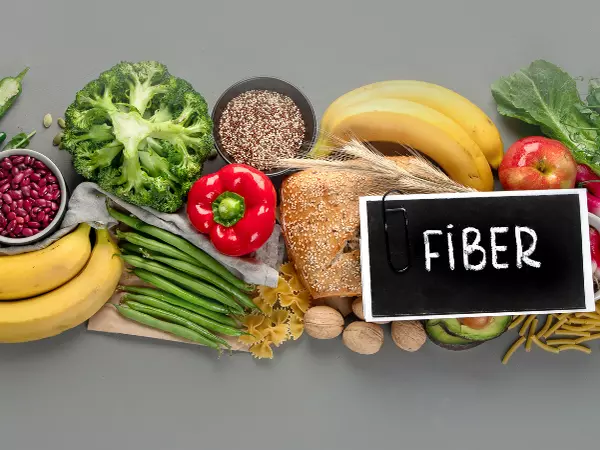
How healthy is a high fiber diet?
Dietary fiber is important for health and disease prevention. It can help regulate bowels and decrease the risk of chronic diseases like heart disease, hypertension, stroke, cancer and diabetes.
Fiber plays a role in weight management. It aids in satiety and helps you feel full for longer after eating.
How much fiber do we need?
For adult men and women, 25-35 g of fiber per day is needed.
What are soluble and insoluble fibers?
Soluble fiber helps to lower cholesterol and blood glucose levels. Insoluble fiber promotes the movement of food through the digestive system. It’s important to have a balance of both fiber types in the diet to promote regularity and avoid constipation or diarrhea. If you are currently having diarrhea, avoid excessive amounts of insoluble fiber.
How to increase your fiber intake
- Increase your intake slowly, and drink plenty of fluids. If you are below the recommended amount of fiber, gradually increase your intake. Overloading on fiber can have the opposite effect than intended. Make sure you drink adequate fluids as well, or you may become constipated.
- Eat plenty of fresh fruits and vegetables. Fresh fruits and vegetables are naturally high in fiber. Have at least one serving of fruit or vegetable with every meal to maximize your fiber intake.
- Have high-fiber food at every meal. If you are trying to increase your dietary fiber, always choose 1-2 foods with 3-5 g of fiber per serving at each meal.
- Use whole grain slices of bread and cereals. Look at the food labels to identify whole grain products. Look for "whole grain" "good source of whole grain" or "excellent source of whole grain." Look for whole-grain in the first one or two ingredients on the ingredient list. The word "whole" will identify it.
- Include nuts, seeds and beans daily. Legumes are a good source of protein and fiber. Include 2-3 servings daily, such as a ½ cup of cooked beans, split beans and lentils or ¼ cup of baked beans, 2 Tbsp. of nuts or flaxseeds.
High Fiber Foods:
- Split Peas: 1 cup cooked = 16 g
- Lentils: 1 cup cooked = 15 g
- Avocado: 1 medium = 15 g
- Peas: 1 cup cooked = 9 g
- Raspberries: 1 cup = 8 g
- Pear: 1 medium = 6.5 g
- Flaxseed: 2 Tablespoons = 6 g
- Brussel Sprouts: 1 cup cooked = 4 g
- Artichoke: 1 medium = 10 g
- Blackberries: 1 cup = 8.5 g
- Broccoli: 1 cup cooked = 5 g
Related articles

Pinched nerves, sciatica and carpal tunnel

Essential tips for preventing sports injuries

Water or electrolyte drinks: What's better for athletes?

What helps with bloating?
